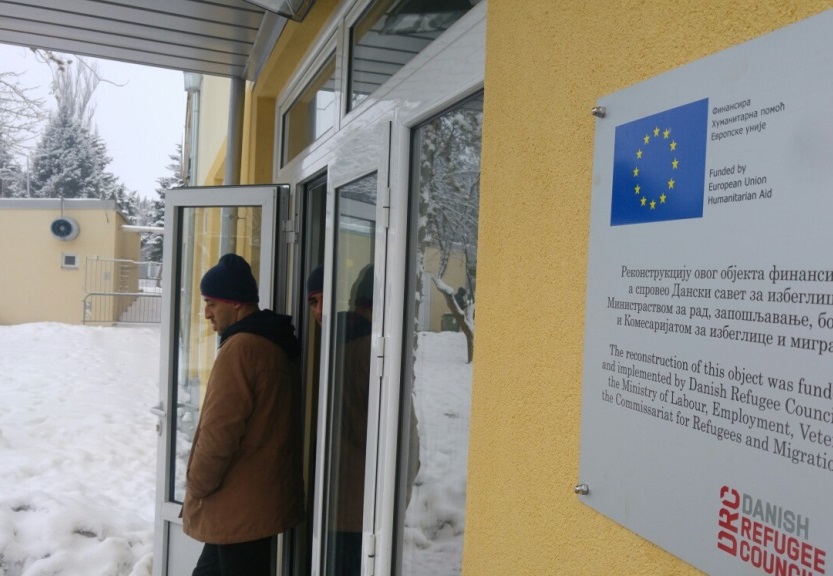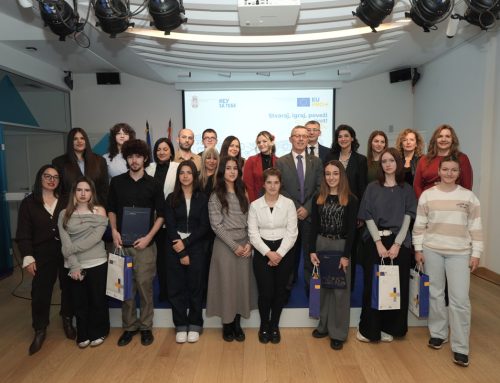Serbia and other countries in the Western Balkans have been facing since May 2015 an unprecedented refugee crisis. According to data published by the Directorate-General of the European Commission for Civil Protection and Humanitarian Aid Operations (ECHO), in 2015 and in the first quarter of 2016, more than 920 000 refugees and migrants – primarily from Syria, Afghanistan and Iraq – have passed through Serbia on their way to Hungary and Croatia.
After the closure of the so-called Western Balkans migration route in early 2016, the number of refugees stranded in Serbia stands now at an estimated 7 550.
The EU has allocated humanitarian funding of €20.1 million to Serbia which contributes to the provision of emergency assistance at 16 government shelters. This includes food, water, hygiene, non-food items, health and protection.
With assistance of the EU civil protection mechanism, ten Member States offered between September 2015 and August 2016 a total of 246 000 relief items to Serbia.
Humanitarian situation and needs
Since May 2015, Serbia, like other countries in the Western Balkans, has been confronted with a massive influx of refugees and migrants in transit from Greece to Hungary or Croatia. Displaced persons have mostly arrived from Syria, Iraq and Afghanistan. In 2015, the government registered more than 815 000 refugees passing through Serbia. After the closure of the so-called Western Balkans migration route in March 2016 and the entry into force of the EU-Turkey statement, arrivals dropped drastically.
With the closure of the route people that were transiting became stranded in the country and have been hosted in reception centres in the West and the South of the country, with freedom of movement and the possibility to apply for asylum. A small number of refugees and undocumented migrants continue to arrive in Serbia from Bulgaria and the former Yugoslav Republic of Macedonia (FYROM) leading to an increase of refugees and migrants in Serbia from 2 000 in March 2016 to 7 550 in December 2016.
While services at the 16 reception sites are covering the needs of refugees and migrants, some 1 200 people are staying at unofficial sites where conditions are extremely poor. The winter has been exceptionally harsh with temperatures dropping to below -15 degrees at times.
EU humanitarian aid funding
Since the beginning of the crisis the European Commission has allocated €24.8 million in humanitarian aid to assist refugees and migrants in former Yugoslav Republic of Macedonia (FYROM) and Serbia.
More than €20.1 million are allocated to Serbia. Actions initially focussed on providing basic assistance at the refugee aid points including health services, temporary shelter, warm clothing, food, water, child-friendly spaces and protection. The assistance is now focused on improving living conditions at the official sites.
The European Commission has been working closely with the Serbian authorities, UN agencies and other humanitarian actors to meet the urgent humanitarian needs of new arrivals and stranded populations as well as the most vulnerable among the refugees. Major implementing partners include the UNHCR, UNICEF, IOM, CARE, Danish Refugee Council, Norwegian Refugee Council and Médecins du Monde as well as national Red Cross societies.
Many of the refugees stranded in the Western Balkans are minors. Child-friendly spaces have been set up by UNICEF at the official shelters where they can be provided with warm clothing, food but also a safe space to play under supervision of qualified staff. This increases their protection from abuse and allows their parents to take care of younger siblings.
The EU civil protection mechanism
Since September 2015 the European Commission has helped coordinate in-kind assistance to Serbia through the EU civil protection mechanism. Ten EU Member States have offered more than 246 000 items such as heaters, power generators, beds, isothermal blankets and sleeping bags. As the influx of refugees and migrants decreased drastically in the first half of 2016, Serbia closed the request for assistance in August 2016.
ECHO factsheet is available here




